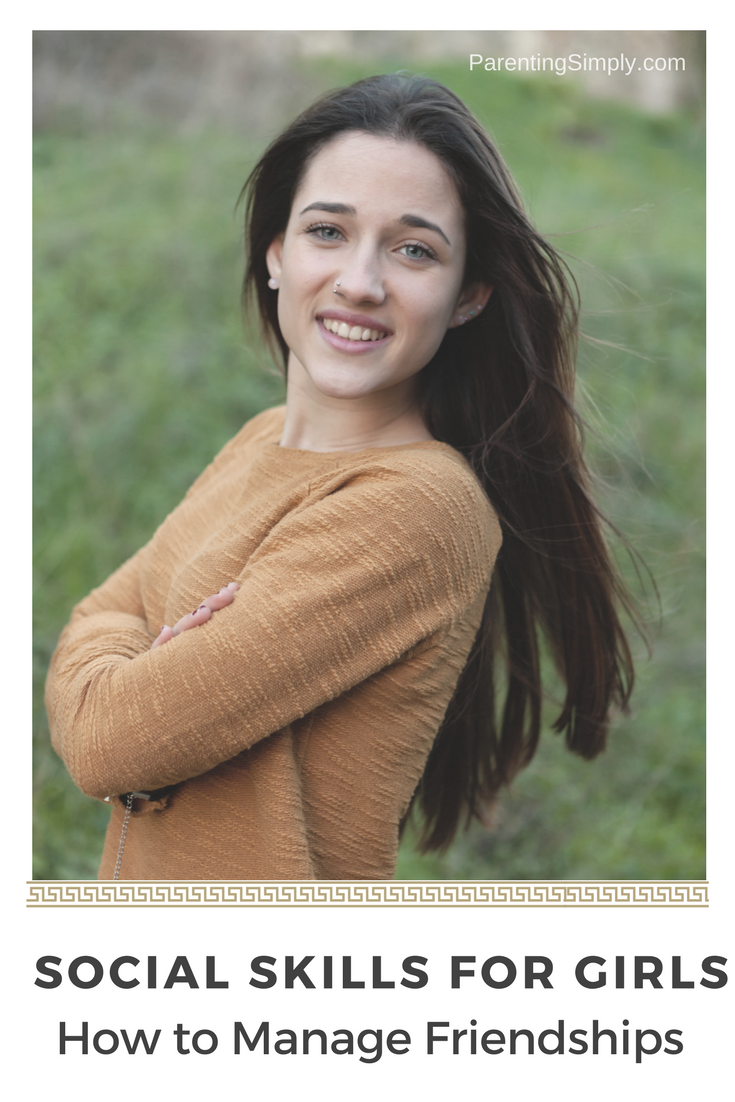
Our children learn so much from how we act and our own behavior. We need to model appropriate social behavior, being friendly, making time for friends a priority, and by acting in a way that shows respect for others. Refraining from gossip and talking about friends behind their back is important as well. We want to teach kids the basics of choosing good friends and being a good friend.
People who know how to choose good friends look for steady confidantes, and people who like you for who you really are. Good friends are those that value you for yourself and share common interests.
As adults, we also know that it’s okay for friends to make some mistakes but we also know that if you are constantly feeling put down or controlled then that friendship should end.
When we want to get this message to our kids, in addition to our modeling the behavior, we can use “talk out loud technique”. When our kids are in earshot we can let them over hear our conversations with our spouse or even ourselves. “The Shwartz’s just had a baby, I am going to bring them over a lasagna.” Or “This one friend that I have always seems to criticize me, my hair, my clothes. I know that people who do that are insecure about themselves. At any rate, I think I need to say something to her.”
Listen to Your Daughter
Social conflict can be painful at all ages. Sometimes watching our children go through difficulties with their friends can bring us back to our own childhood. It may stir up old hurts and social anxieties. We need to separate our own emotions from our daughter’s. It doesn’t help to rush in and fix the problem; we need to give our daughter’s the tools that they need to independently manage their social issues.
One way to do that is to give girls a safe space to vent their feelings. No advice, no interventions, just listening. Many times a conversation with our daughter about their friends goes like this:
Daughter: “Molly didn’t let me sit next to her at lunch. She is so mean!”
Mom: “I don’t know why you play with that girl. You are always complaining that she is not nice to you. You need to find someone who is truly a good friend.”
Daughter: “There is no one else to play with!”
Mom: “What about Kayla? What about Shana? You never play with Rachel, you used to play with her a lot…”
This kind of conversation can just exacerbate the situation. Although the mom is trying to be helpful, her underlying message is, “You don’t know how to be a friend or manage friendships.”
What our daughters need most is for us to carry on a conversation that gently reflects what they are saying:
Daughter: “Molly didn’t let me sit next to her at lunch. She is so mean!”
Mom: “That could be upsetting..”Daughter: “Yeah, she said that she got a chocolate bar from her uncle and she didn’t want to share it.”
Mom: “Oh, a chocolate bar from her uncle…”
Daughter: “Yeah, if I had a chocolate bar, I would share it with her..”
Mom: “You would feel comfortable sharing a chocolate bar with a good friend.”
Daughter: “She never brings candy to school, her Mom only packs her healthy stuff, she usually does share…
Mom: “She usually is able to share her stuff…”
When we empathize with our daughters and reflect back what they are saying, they can hear themselves think, they are also more likely to come to their own conclusions on how to manage their own social situations.
To help them further, we can also ask them, “Do you want to vent or do you want advice?” When we empathize and take the time to listen we send our children the following message, “This is not a bad situation, you can handle this, you can manage this friendship and make good decisions about your friends.” Unless we know for sure that there is overt bullying going on, this is the best course of action.
